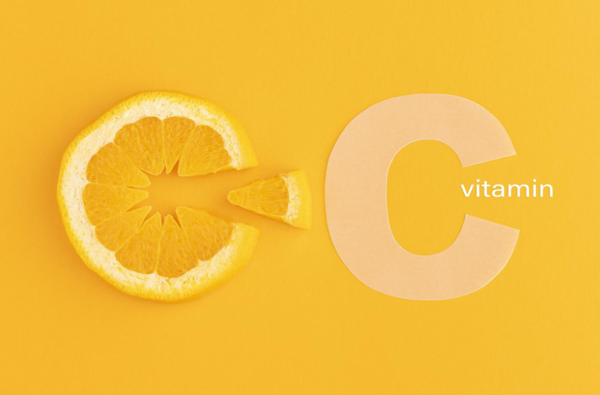We are always urged to have a diet that’s anti-inflammatory. Why is that so? That is because a diet which causes inflammation, makes you susceptible to an increased risk of chronic diseases like obesity, diabetes, heart ailments, and even cancer. It can weaken the immune system and make you prone to catching infections very easily too. Sometimes the best way to combat chronic inflammation is not by taking the right medications alone, but by including the right foods, and by that we mean adopting an anti-inflammatory diet. This means that your daily diet must comprise foods that prevent inflammation, and exclude the ones that cause it. So what are these foods you ask? Let us take a comprehensive look at them.
What is inflammation?
There are two types of inflammation - acute and chronic. Acute inflammation is the body’s natural response to an injury or an infection. For instance if you bang your knee or cut your finger, your immune system will call for and direct a host of white blood cells to surround or
protect the area, resulting in redness and swelling, both signs of inflammation. Without this, injuries and infections would persist, even turning out to be fatal sometimes.
Chronic inflammation, on the other hand, takes place in response to other harmful and unfavourable substances in the body such as excess fat, plaque buildup, and toxins from cigarettes. Untreated chronic inflammation in the body can result in diseases like atherosclerosis, non-alcoholic fatty liver, cystitis, diabetes, cancer and other diseases.
What Foods Cause Inflammation?
As stated above, the foods that we eat can profoundly cause or prevent inflammation in the body. If we consistently pick foods that cause chronic inflammation, we increase our susceptibility to various illnesses. So let us look at what foods we can exclude from our diets that make us more prone to this condition.
Fried foods
You may love to devour some delicious french fries or chicken nuggets, but they are fried foods and deep fried foods cause chronic inflammation. These foods produce something known as advanced glycation end products, popularly known as AGEs, which can directly cause inflammation in the body.

High-sugar foods
Does sugar cause inflammation is a question we get asked a lot. Well, consuming too much of high sugar foods such as sodas, aerated drinks, and desserts can lead to chronic low-grade inflammation. It can lead to weight gain, increase in bad cholesterol, and excess production of AGES (when protein or fat combine with sugar in the bloodstream), which all lead to inflammation in the body.

Refined carbohydrates
These carbs are devoid of vitamins, minerals, and all fibre- nutrients that are necessary for proper digestive health and nutrient absorption. This is why they are known as empty calories. Given that they get digested quickly, they also tend to be of a high glycemic index, causing rapid spikes in blood sugar and insulin levels after meals. Mindlessly gorging on refined carbs could lead to insulin resistance, and eventually weight gain, which further causes inflammation.
Processed foods
Processed foods consist of refined ingredients and artificial substances that do not contain much nutritional value. Everything that you should avoid right from artificial colours, sweeteners, and chemical flavoring agents are included in processed foods. These are not only unhealthy but also when consumed in excess can lead to inflammation and other chronic diseases.
Foods That Reduce Inflammation
The best way to keep diseases at bay is by incorporating an anti-inflammatory diet. Anti-inflammatory diet comprises foods that fight inflammation, which include lots of fresh vegetables and fruits (preferably the ones that are low in sugar and rich in fibre), plant-based proteins like nuts, beans and legumes, lean meats, fatty fish, as well as fresh herbs and spices. Including a low-inflammation diet is not so much of a specific regimen as much as it is a lifestyle choice, which needs to be mindfully followed through.

If your diet lacks the necessary nutrients, then try out Well Being Nutrition’s Daily Greens. It contains multivitamins from 39 farm-fresh greens, veggies, fruits, and antioxidant-rich superfoods and is a perfect solution for you! Just drop a tablet into your glass, watch it fizz, and sip on the delicious drink to get your daily dose of nutrients!

Final Takeaway- How To Reduce Inflammation?
As we have seen already, chronic inflammation is bad for health and causes diseases. Given that diet plays such a pivotal role in its management or prevention, we need to ditch refined carbs, processed and high fat and sugar foods, and replace them with fresh fruits, vegetables and whole foods. But remember food alone cannot reduce inflammation. Incorporate healthy habits such as managing stress, exercising regularly, taking medications on time, sleeping for at least 8 hours and drinking plenty of water to assist you in your journey to a healthy lifestyle.
References:
- Chronic Inflammation, Links with Angiogenesis and Wound Healing
Guido Majno, The American Journal of Pathology, DOI:https://doi.org/10.1016/S0002-9440(10)65648-9, (https://ajp.amjpathol.org/article/S0002-9440(10)65648-9/fulltext) - van der Lugt T, Weseler AR, Gebbink WA, Vrolijk MF, Opperhuizen A, Bast A. Dietary Advanced Glycation Endproducts Induce an Inflammatory Response in Human Macrophages in Vitro. Nutrients. 2018;10(12):1868. Published 2018 Dec 2. doi:10.3390/nu10121868, (https://www.ncbi.nlm.nih.gov/pmc/articles/PMC6315629/)
- López-Alarcón M, Perichart-Perera O, Flores-Huerta S, et al. Excessive refined carbohydrates and scarce micronutrients intakes increase inflammatory mediators and insulin resistance in prepubertal and pubertal obese children independently of obesity. Mediators Inflamm. 2014;2014:849031. doi:10.1155/2014/849031. (https://www.ncbi.nlm.nih.gov/pmc/articles/PMC4248360/)
- The Anti-inflammatory Lifestyle, UW Integrative Health, Department of Family Medicine and Community Health, (https://www.fammed.wisc.edu/files/webfm-uploads/documents/outreach/im/handout_ai_diet_patient.pdf)

























